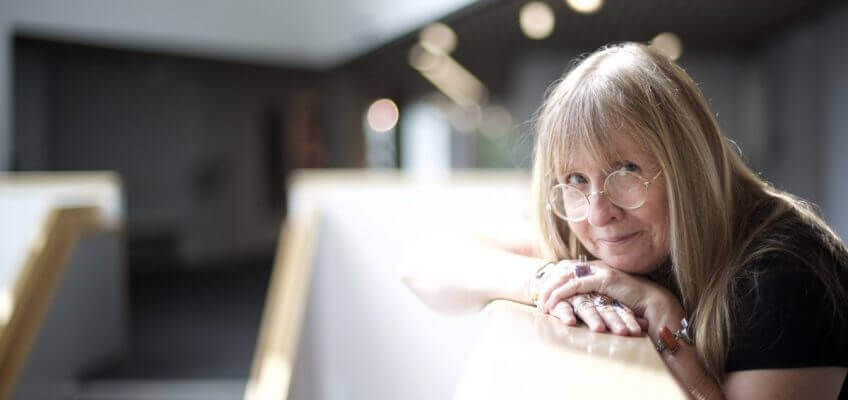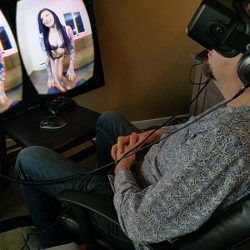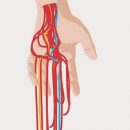Techno-sex Researcher on Orgasmic Frequencies and Massive Online Haptic Orgies
Dr. Trudy Barber lays bare the human condition.

“Everybody has a different orgasmic frequency,” explains Dr. Trudy Barber as our conversation gets going. Apparently, these frequencies are so unique that they could be used to identify us, much in the same way as fingerprints.
The implications of that are quite significant. If we can learn to identify such frequencies, she says, the next step would be to start tweaking them, and orgasmic training could definitely become a thing in the future: “If you could technologize your responses in terms of Hertz and waves and frequencies, you could code it in and manipulate it like a synthesizer, accentuating sounds and bases and all the rest of it.”
Massive open haptic online orgies
With a doctorate in Computer Fetishism and Sexual Futurology, Barber is certainly qualified to talk about such things. For the past 20 years, she’s been investigating how people become intimate with technology, and is credited with creating one of the first immersive VR sex environments while still an undergraduate at Central Saint Martins in 1992.
For her Ph.D. research, she embedded herself in a community of people who were using technology to explore their sexual identities, including several transgender people and cross-dressers from different countries. At the dawn of the modern Internet age, this community started buying medical equipment online, modifying it to suit their purposes, and attaching them to private servers which they built from scratch.
“There was this one individual, a man, who would come into this room and attach/insert all these different customized devices to his body, everything from dildos to nipple rings. The others in the group would then log onto this private server from wherever they were, and remotely stimulate those different devices. It’s what I called a MOHOO—Massive Open Haptic Online Orgy.”
Getting intimate with technology
The most interesting aspect, Barber found, was how this interaction directly affected the man’s identity. When he was in the MOHOO he perceived himself as a woman—Stephanie. It posed all sorts of questions around the relationship between sexuality, technologies, and the concept of the multi-mediated body. What they created was, in many ways, a precursor to the hybrid virtual-physical environments emerging now as virtual reality experiences.
“Back when I started people thought I was crazy, talking about how we were going to get intimate with each other and lose ourselves within those virtual worlds. Now it’s becoming mainstream. When we used to put the big VR headsets on we looked like aliens from some weird science-fiction movie, but now it’s trendy to have your Cardboard or Oculus Rift. All these social experiences are now big business of course.”
Sex toys are also big business. The industry is worth an estimated $15 billion, and teledildonics is a burgeoning field. There are now even University-level courses on Industrial Design focusing specifically on the sector. Owning that type of object is no longer a “dirty little secret” for most people.
But fetishization is not necessarily something you experience in a seedy Soho shop. Barber is actually more interested in how we can have feelings of attachment and intimacy for our everyday technology gadgets. As an example she tells me how, after buying her new smartphone, she couldn’t “put the damn thing down.”
“Technology can enhance your sexuality, your perception of self, and your relationships, but at the same time as it enhances those things so brilliantly it can destroy other things too. There are equally valid arguments on both sides and it’s really interesting how one person’s pleasure turns out to be another’s element of disgust. It’s fascinating from a research perspective because it really leaves the human condition open to so much scrutiny and revelation. That’s why it scares people, because in a way it reveals too much of ourselves, to ourselves. They’re afraid they might actually like it.”
Trudy Barber spoke at FutureFest 2016, a festival of ideas which explored—among other things—the Future of Love with curator Ghislaine Boddington and trailblazers in the sex tech arena such as Cindy Gallop from Make Love Not Porn.
Republished with permission from Alice Bonasio
Image source: FutureFest
Leave a reply
You must be logged in to post a comment.

















